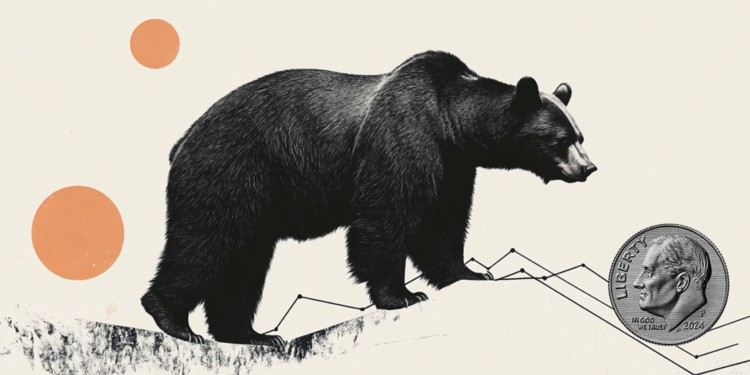Anyone who has become an adult in the last twenty years has (almost) never heard of it. But for those who were already in the 70s/80s, this is one of those revivals that he would never have wanted to welcome. She is already here, quite vigorous, and like those bacteria that become drug-resistant if always and only fought with antibiotics, she feeds herself with the only remedy put in place, the money. She, had it not yet been understood, is inflationprotagonist of the essay** Who wants too much** (Mondadori, pp.159, 15€) by Mario Unali, asset manager and popularizer, who analyzes it from not only economic perspectives. Because, this is the thesis of the book, inflation has an impact on people’s financial wealth, but it also affects communication, literature, art and music.
The all you can eat paradox
The paradox is more philosophical than economic: from the abundance of a good
desirable results in a worsening of well-being. Already after World War II
there were those who were aware of it: John Maynard Keynes in fact argued that in a general situation of well-being and full employment, the propensity to consume leads to the desire for more goods until the excess of collective desire leads to a condition of discomfort: the loss of purchasing power caused by inflation. But how can you not want something good? Here, the answer (and perhaps the solution to the problem) is knowing how to keep excesses at bay. Passing from the all you can eat system of thought to a conscious, responsible and self-limiting choice in which a lot does not turn into too much, with a view to a sobriety to which we have become unaccustomed: «It is the story of wealth that it keeps within it the hidden seed of poverty», says Unali.
«The idea of the book starts from this paradox: too much money in circulation makes
raising prices and impoverishes you».
From the economy to Spotify
The author then extended the paradox to other fields, to the effects that the wide, indeed, the exaggerated availability of goods, typical of the age in which we live, has – really – on our well-being. Because even an excess of useless words hurts a text, the unlimited availability of information almost never means greater knowledge, too much music or film and TV series on offer on platforms in the end generates difficulties in choosing and proves to be illusory, because user profiling has already decided for us, always and only giving us what we already like, and emptying of content what we believe we have control over.
Money doesn’t bring happiness
Sentence made, but not so far from the context. “The key theme of the book is to rethink abundance as a founding value of our society,” explains Unali. «Money is a means, not an end. It is certainly a powerful tool, but money does many other things than buy». For example, create equal starting conditions for everyone, reducing the differences between people. Because, by borrowing Sartre’s considerations as the author does, our weighted consumption choices can give rise to a different way of consuming (not only money but also books, art, music, news ) and, by consuming individually in a different way (let’s say it, more “ethical”) we can reverse the consumerist trend that imprisons us under the illusion of putting every possibility at our feet. Every individual action, recalls Unali, takes on value and concreteness only if related to others.
book cover “Who Wants Too Much”
5 things about inflation you never thought about:
1. Money can impoverish us!
“Inflation is always and everywhere a monetary phenomenon,” argues the theory that
earned Milton Friedman the Nobel Prize in 1976. Too much money in circulation =
higher prices = less purchasing power. A paradox.
2. Debtors toast
Inflation reduces the real value of wages but also that of debts, including the
public debt.
3. Toothpaste and its tube
History teaches that, once it rises to current levels, inflation becomes one
variable that is difficult to control. Bring it back to the 2% desired by governments and banks
central is a feat akin to returning toothpaste to its tube.
4. A game as old as the world
Inflation has been dormant for over 40 years, but it has very ancient roots. In the third
century AD the Roman emperor Diocletian had to face long decades of
inflation. It was only his successor Constantine who won the price battle.
5. The banknote of banknotes
In Zimbabwe in 2008 prices doubled every day. The government was
forced to issue a hundred trillion dollar bill, a number a
fifteen zeros. Today it is a collector’s item.
Source: Vanity Fair
I’m Susan Karen, a professional writer and editor at World Stock Market. I specialize in Entertainment news, writing stories that keep readers informed on all the latest developments in the industry. With over five years of experience in creating engaging content and copywriting for various media outlets, I have grown to become an invaluable asset to any team.







